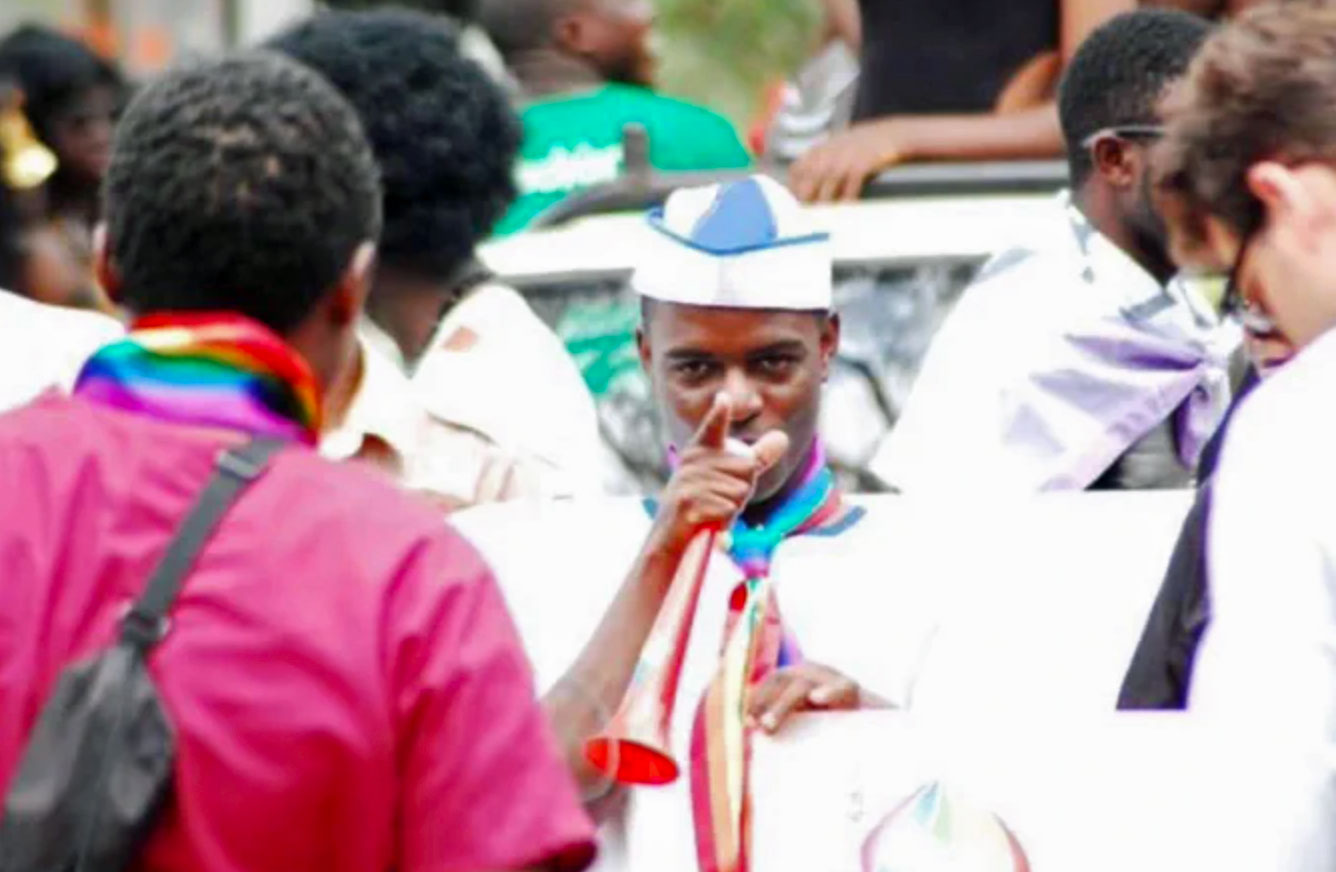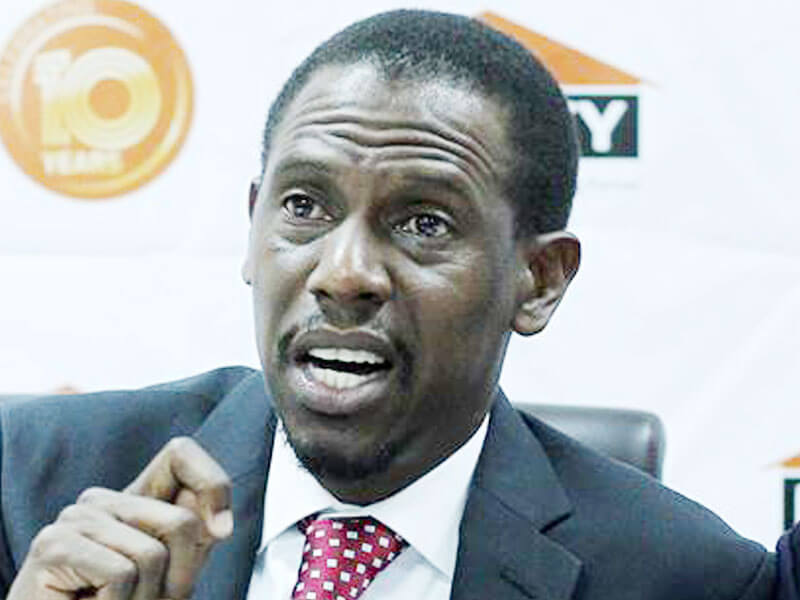World Bank cut off new loans to Uganda over the recently passed Anti-Homosexuality Act

LGBT rights activist Dr. Frank Mugisha says he supports the World Bank’s suspension of new aid to Uganda over its actions against queer Ugandans. (Photo courtesy Frank Mugisha on X.com)
LGBT rights activist Dr. Frank Mugisha says he supports the World Bank’s suspension of new aid to Uganda over its actions against queer Ugandans. (Photo courtesy Frank Mugisha on X.com)
Human rights defenders are speaking out in support of the World Bank’s recent decision to suspend new loans to Uganda in response to the passage of the Anti-Homosexuality Act, which the Bank has said threatens its ability to support inclusive development.
While the move has been condemned by Ugandan government leaders, it’s been praised by activists seeking support against a draconian law that imposes stiff penalties on queer Ugandans for same-sex intimacy, criminalizes pro-LGBT advocacy, and threatens to make it impossible for queer Ugandans to even rent homes.
“The decision was more than just a financial one; it was a powerful statement about the importance of human rights and inclusion,” says Dr. Frank Mugisha, a gay Human Rights Advocate.
“MPs behind the sweeping, far-reaching & repressive Anti-Homosexuality law are all over the place holding press conferences because they know the World Bank leadership is in town. They want the Bank not to listen to victims of the law and not to conduct independent third-party monitoring of the ongoing violations under the law. We would not be here if they knew better. The law is unhelpful. Simply repeal it,” says Nicholas Opiyo, a Human Rights Attorney.
Prior to the enacting of the law, the Parliament and the President of Uganda were informed about the illegalities of the whole process and why it should not be passed.

Ugandan Attorney General Kiryowa Kiwanuka (Photo courtesy of FlashUGNews.com)
Before President Museveni assented to the bill, the Attorney General, Kiryowa Kiwanuka, described it as redundant, saying it duplicated multiple offences in existing pieces of legislation. Appearing before Parliament’s Gender Committee, Kiwanuka noted that the bill would be challenged in Courts of Law because it is contrary to Section 39 of the Interpretation Act, which bars punishment under more than one law for the same offence.
“Several of the clauses in the Anti-Homosexuality Bill, 2023, are similar to provisions in other enactments. Where the law has adequately provided for an offence, it is right and proper to avoid duplication for purposes of easy implementation,” said Kiryowa.
Kiwanuka highlighted homosexuality under Clause 2 of the new Bill as having been provided for under the Penal Code Act, Cap 120 as natural offences while Clause 4 on an attempt to commit homosexuality as having been covered under Section 146 of Cap 120 of the Penal Code Act.
He cited other duplications such as Clause 8 which penalizes aiding and abetting homosexuality, Clause 9 on conspiracy to engage in homosexuality, and Clause 11 on detention with intent to commit homosexuality.
Clause 13, which criminalizes same-sex marriage, is already covered by the Marriage Act, which defines marriage to be between a man and a woman and Article 31 (2) of the Constitution, which also prohibits same-sex marriage.
The Office of the Director of Public Prosecutions (DPP) also weighed in by asking the parliamentary committee to drop the bill and consider an amendment to the Penal Code Act to cover any legal gaps cited.
“This doesn’t justify a completely new law. This can be achieved by simply amending the penal code provisions,” James Odumbi, the Deputy Director of Public Prosecution said.
Both local and international human rights advocates and organisations respectively petitioned President Museveni not to assent to the law after it was passed by the parliament. Leaders of the United States, the European Union, United Nations issued strong statements urging Museveni to repeal the law, citing possible ramifications if it was brought into force. They all fell on deaf ears. The government is now being told to stop lamenting and either carry its cross or repeal the homophobic law.
Ogenga Latigo was one of the human rights defenders who successfully petitioned against the 2013 Anti-Homosexuality law in 2014. In a recent interview with the Daily Monitor newspaper, Latigo said the law was not about solving a problem, but exciting the public.
“Each time you see a law like that, government is looking for sentimental support because you will then have Christians very excited,” he said. “When we depend on foreign money for everything, and you expect that you can speak on behalf of the owners of money? That is being foolish.”
Even anti-gay members of parliament like Muwanga Kivumbi regret the passing of the law.
“I don’t think this issue (Anti- Homosexuality Bill) was handled with proper due diligence and the implications are dire. We need to examine whether it was the most challenging thing at the time it was passed,” he said recently while appearing on a local TV talk show.
The World Bank’s decision cuts off a significant source of revenue that the government uses to finance development projects.
“No new public financing to Uganda will be presented to our Board of Executive Directors until the efficacy of the additional measures has been tested,” the World Bank Group said in a statement in August. “Our goal is to protect sexual and gender minorities from discrimination and exclusion in the projects we finance. These measures are currently under discussion with the authorities.”
Mugisha recently had an opinion piece published in the Daily Monitor in support of the World Bank’s decision.
“As the world continues its march towards greater inclusivity, the stance of the World Bank continues to serve as a guiding beacon shaping a more equitable future for all, echoing the wisdom of Thomas Sankara: We must choose either champagne for a few or safe drinking water for all,” he wrote.
While appearing before the Parliamentary Committee on Finance, Planning and Economic Development on August 10, the State Minister for Finance Henry Musasizi revealed that government is engaging the World Bank on its decision to cut financing of projects in Uganda
“We are negotiating with the World Bank, but should we fail to agree, then we shall make some decisions on the budget which we shall bring to the attention of Parliament for approval,” said Musasizi.
Musasizi admitted that the move by the World Bank will have dire consequences on the operations of government, though some members of Parliament are skeptical that the situation is severe.
While Chairing the House on August 15, Deputy Speaker of Parliament Thomas Tayebwa also said he was aware Cabinet is already in talks with the World Bank over the matter.
“Colleagues, I do not know why you are panicking as if the country is going to shut down. I saw the communication of the President saying they are engaging with the World Bank,” Tavebwa said.
COMMENTS